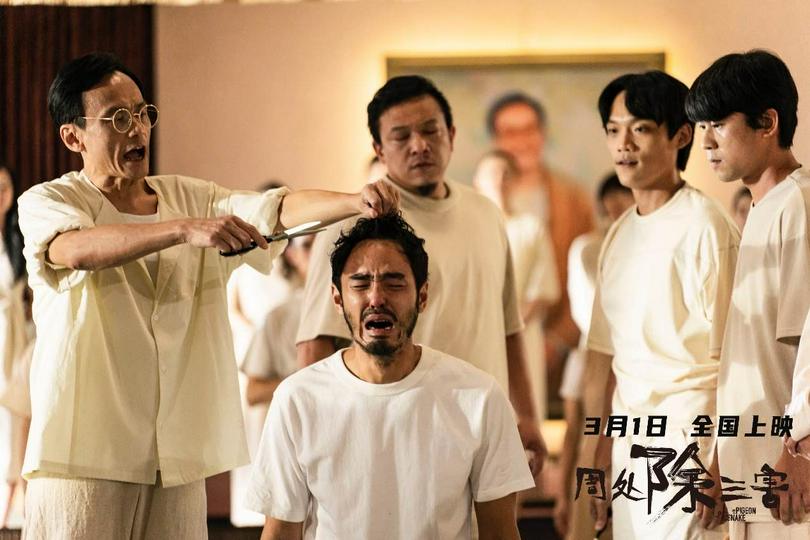In the Taiwanese movie "The Pig, the Snake, and the Pigeon," which recently hit theatres nationwide, the scenes in which the protagonist, Chen Kui-lin, slays the evil cult leader, Lin Lu-ho (bullhead) and wipes out the entire cult have certainly made many viewers' blood boil.
This has raised the curiosity of some netizens: what kind of cult is depicted in the movie? Some people point out that the cult in the movie has some features very similar to some Christian heresies spread in mainland China, such as confessing sins, singing hymns, personal control, and so on. Some extremists even claim that what is shown in the movie is the Christian faith and focus their attacks on it.
So, what is the actual prototype of the cult in the movie? In the movie, when the bullhead talks about their faith, he uses concepts like "heaven and earth" and "the heavens," which obviously come from Chinese Confucian cosmology. He also mentions Buddhist concepts such as "rebirth" and "destroyers." For instance, in the scene where the male protagonist exposes the cult and the cultists kill him, he used the word "karma" (obstacles consisting of actions). But actions such as confessing sins and singing hymns are obviously based on the practices of the Christian faith. Therefore, this cult can be said to be a hybrid of several religions.
Many modern cults are often a mixture of several religions. For example, many Korean cults are a combination of shamanism and Christianity. As for the American cult "Peoples Temple," its leader, Jones, claimed to be the reincarnation of Buddha, Christ, and Lenin.
In the movie, the bullhead is simply a villain who repackages himself under the guise of a cult so he can continue to harm people.
The cult plot in "The Pig, the Snake, and the Pigeon" also reveals a significant dark side of Taiwan: cultism is widespread. Take the Korean cult "Providence" or "Jesus Morning Star" for example, the cult continues to operate in Taiwan under the name "Chinese Christian Youth Association" despite the exposure of the documentary "In the Name of God," and it has gone to great lengths to deify and whitewash Jung Myung Seok, who is currently serving a prison sentence in South Korea. The largest cult in Republican China, "Yiguandao," is now operating legally in Taiwan after New China outlawed it.
Taiwan's rampant cults are largely the result of the prevalence of feudal superstition in the area. Because folk beliefs such as "Youshen" (wandering gods), which were passed down from the Fujian area during the Spring Festival (with the removal of rituals such as divination and mediumship), have been well preserved in Taiwan, cults are able to flourish.
The extreme liberalism in Taiwan is also an important factor in the spread of cults. Since religious freedom is made absolute in Taiwan, there is a lack of proper control over religious beliefs. Just like the "Providence," cults can operate openly and would not be banned even if they were reported. In addition, some members of cults also join the political circle, and administrative resources become available to them, which increases the difficulty of managing these cult groups and results in the proliferation of monster and demon worship.
The cult in "The Pig, the Snake, and the Pigeon" is not large. Since there are countless cult groups and folk masters of the same type in Taiwan, they are not prone to creating social destructiveness like the cults in Korea. This dispersion of cults also makes it difficult to control them in terms of social harm, which is another important factor in their spread. It is likely that the director saw the inability of the law to deal with the cult groups, which is why he had Chen Kui-lin act as a messenger of justice to eliminate the cult.
(The article was originally published by the Gospel Times and the author is a Christian from Xiamen.)
- Translated by Joyce Leung












